When people find out that I deal with swimming pools on a daily basis, one of the most common questions I get is, “What do you think about salt pools?” to which I find myself going into a little sales blurb on what a salt pool is. I would say 90% of the people have heard of salt pools, but don’t really know how they work. Most know they are supposed to be nicer than chlorine pools and think that salt pools don’t use chlorine, but this is not the case. This article will explain how a pool salt system works, if one is the right choice for you and then the process of converting your pool from traditional chlorine to salt.
What is a salt water pool?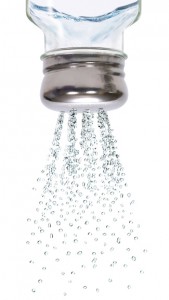
With a salt pool, you add salt to your pool water. This amount is below the taste threshold meaning you don’t taste a strong salt taste like associated with the ocean. Ocean water is at 50,000 parts per million (PPM) of salt. A salt pool is a mere fraction of this and only has 3,000 PPM of salt. In a salt pool an electrode (also called a salt cell) is installed in your plumbing and as the diluted salt water passes through the cell, the electrical reaction between the electrode and the salt water creates chlorine. So, with a salt pool you are still using chlorine to sanitize your pool as you are just manufacturing your own. The chlorine that is produced by a salt pool is a higher quality of chlorine that does not have the negative effects of traditional chlorine like the chlorine smell, red eyes and itchy skin. With a salt pool you no longer need to purchase chlorine tablets, liquid chlorine or shock as the salt system will be creating all of your chlorine. Salt systems also have a superchlorination feature that acts as shocking your pool. If you’re interested in learning more about salt water pools then I would suggest reading our recent blog post on “What is a Salt Water Pool” which goes into much greater detail on this topic.

The pros & cons of salt pools
Pros:
- No more buying chlorine – A salt system manufactures natural chlorine. That means no more buying chlorine tablets, shock or liquid chlorine!
- No more manually adding chlorine – On a salt system you dial in your chlorine production and that is it. This is a major benefit over traditional chlorine where you have to make sure to add your chlorine to the pool each week and if you forget or go on vacation then you are faced with issues. I have to admit this is my favorite benefit of a salt pool.
- No chlorine smell, red eyes or itchy skin – The negative effects of chlorine like the chlorine smell, red eyes and itchy skin are all due to chloramines. The chlorine that is produced by a salt pool does not have chloramines. This means all of these traditional side effects of chlorine are eliminated. This is the reason why many people who swim in a salt pool think that it is a non-chlorine pool.
Cons:
- High pH & calcium build-up – In salt pools the pH level of the water likes to rise. If you don’t keep your pH levels in check then this can lead to calcium scaling in your pool or your salt cell. This is easily maintained by testing your pH levels weekly and adding muriatic acid if you need to lower your pH.
- Salt cell replacement – Every 3-7 years you will need to replace your salt cell which costs between $200 – $700.
- More parts – On a salt system there are more parts which can become faulty like the circuit board, salt cell, flow sensor or flow switch.
- Corrosive to pool and equipment? – This topic is open for debate as many pool professionals feel salt water is perfectly fine for your equipment and others feel you need special equipment. Our experience is that sometimes the shaft seal on your pool pump may fail a little quicker, but this is an easy inexpensive fix. If you are adding a heater to your pool you may consider a cupro nickel heater as this heater has a heavy duty heat exchanger which is supposed to hold up better to salt. The last item you may consider is a sacrificial zinc anode. You place this zinc disk in your skimmer and the anode absorbs all the corrosion
Converting from chlorine to salt
Once you have made the decision that you want to convert from a traditional chlorine pool to a salt pool then your first decision will be which salt system to choose. A few considerations you will want to take into account when selecting your salt system are listed below.
Selecting your salt system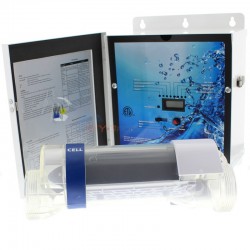
- Pool size: Salt systems range from pools 10,000 gallons – 100,000 gallons. You will need to select the system based on your pool size. You can always go with a larger unit on a smaller pool. This will allow you to run the salt system for shorter periods of time and you will have longer time between replacing your salt cell.
- Budget: Salt Systems can cost anything from $500 – $2,000. The less expensive models have few bells and whistles where the higher end systems have a bunch of fancy features including the ability to control all your pool equipment.
- Features: Salt systems vary in regards to the features offered. Some of these features include: salt readout, self cleaning, self diagnostics, digital readout and the ability to control pool equipment.
- Replacement cell cost: This is an important factor and is often overlooked. Your salt cell will need to be replaced every 3-5 years. Replacement salt cells range from $200 – $700. So, if you get a salt system which uses a $200 cell then you could replace this cell 3½ times before it costs as much as replacing the $700 cell.
- Where to buy: Here you can check out our full line Salt Chlorine Generators we even have a model for in-ground pools starting at $499.
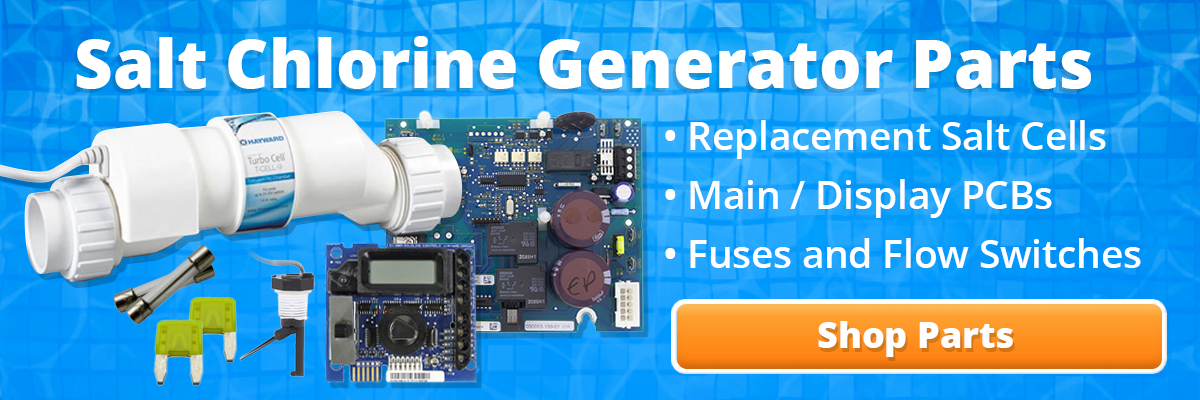
Installation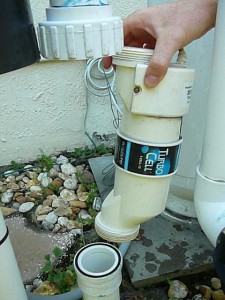
Now it is time to decide if you are going to hire a pool company to install the salt system or do it yourself. If you go the pool company route, then you are looking at $300 – $500 for installation. Many homeowners decide to tackle this DIY project themselves as this is usually a 3-6 hour job that can be tackled over the weekend. We have put together a step-by-step video on “How to Install a Salt Chlorine Generator” which would be a good primer to see if you think you can tackle the job. The installation consists of some basic plumbing and electrical work.
Adding the salt
After you have installed your salt system the next step is to add the salt to your pool. We have put together a guide on “How to Add Salt to a Pool“ which discusses this process in greater detail, but we will touch on the basics which are:
- How much salt do you need?
- Testing water
- Selecting salt
- Adding salt
The first thing you will want to do is check the owner’s manual to determine how much salt you will need. Normally this will be between 400 lbs. – 1,000 lbs. based on the size of your pool. You will want to pick up some pool salt test strips as you don’t want to assume that you are starting at 0 PPM of salt as often your water will have some salt in it (for example you may be starting off at 200 PPM of salt). The salt strip will also be used after you add all of your salt to ensure you are within the 3,000 – 3,5000 PPM salt range.
Next you will need to pick up some pool salt. This can be easily found at your local home improvement store, pool store or even grocery store. You will just want to make sure the salt you choose is at least 99.8% NaCl and that it is granular (no pellets or rock salt). Often people get concerned when they hear that they need to add 400 lbs. of salt, but this is just 10 bags of salt (40 lb. bags) and salt costs about $5 per bag so this would be about $50 in salt. Salt does not dissolve from water meaning that you will only need to add additional salt if you experience evaporation, heavy rain, water being splashed out of the pool or a leak. Normally you would add several bags of salt throughout the year to maintain the required salt levels.
Now it is time to add the salt to your pool. Your pool pump should be turned on and the salt system should be turned off. You will want to broadcast the salt evenly around the pool for even distribution. Avoid adding the salt directly to the skimmer or main drains at the bottom of the pool as this can damage your equipment. You will run your filter pump for 24 hours to allow for the salt to mix evenly through your pool water. After 24 hours use your salt test strip to verify that you have the correct salt reading of 3,000 – 3,500 PPM of salt.
Starting up the salt chlorine generator
It is very important to start off with good pool water. Your water chemistry should start off at the following values:
Salt: 3,000 – 3,500 PPM
Free Chlorine: 1.0 – 3.0 PPM
pH: 7.2 – 7.8
Cyanuric Acid (Stabilizer): 50 – 75 PPM
Total Alkalinity: 80 – 120 PPM
Calcium Hardness: 150 – 400 PPM
At start up it is best to shock your pool from an outside source like a standard granular pool shock. Then, wait until the chlorine level has returned to between 1 to 3 PPM before turning on the salt system. Now it’s time to kick on your salt system. We suggest setting the system to 50% chlorine production and let the system run for 24 hours. After 24 hours test your pool water with a good test strip to see if your free chlorine is between 1-3 PPM. If your chlorine is too high or too low, dial your chlorine product up or down in 10% increments and retest your chlorine in 24 hours. Repeat this process until the proper chlorine level is reached. The nice thing is that once the salt system is dialed in it is pretty much a set-it-and-forget system, because it is always there producing natural chlorine for your pool at the desired amount to keep your pool crystal clear. Salt systems also have a superchlorinate feature which shocks your pool. So if you ever run into demanding water conditions then this feature comes in handy to shock your pool and get your pool water looking clear again.

Maintenance
Testing your water
Now that you have your salt system up and running you will want to periodically test your water to make sure that your water chemistry is in balance with the values listed earlier in this article.
Prolonging the life of your salt cell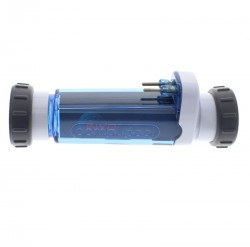
Salt cells normally last 3-7 years. To get longer life out of your cell, you will want to follow certain steps.
As your salt cell is in use, calcium deposits will build up on the blades of your salt cell. To remove this calcium build up, soak your cell in diluted acid solution. To prolong the life of your cell, you will want to clean it at least once a season. On the flip side you want to make sure you do not clean your cell too often or with too highly concentrated acid solution as this can strip the cell of its titanium coating making it useless.
Calcium build-up
Salt pools tend to make the pH in your pool want to rise so it is important that you are monitoring your pH levels and adding muriatic acid to reduce the pH. High pH levels cause much quicker calcium build up on your salt cell as well as on your pool tiles. I learned this the hard way! If you want to get fancy, many pool owners are coupling their salt systems with an acid feed pump. This is nice as the production of chlorine in your pool is automatically produced by the salt chlorine generator and the pH levels are automated by the feed of acid from the acid pump.
Need help converting your pool to saltwater?
When I built my pool I installed a salt system and I can honestly say it is one of my favorite features of my pool. After the initial set up, I really did not had to worry about my chlorine at all. If you have decided that you want to convert your pool from traditional chlorine to salt then post any questions in the comments below and we would be happy to help. Also if you have already made the switch, we would love to hear about your experience. You can also always reach us by phone at 1-877-372-6038 with any questions.

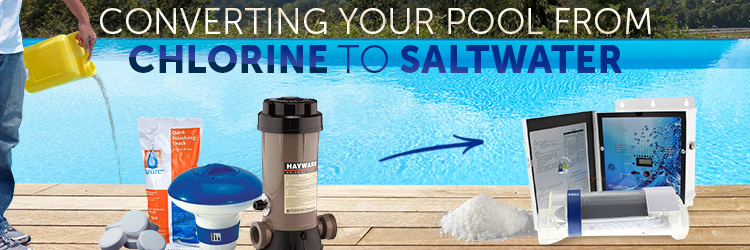

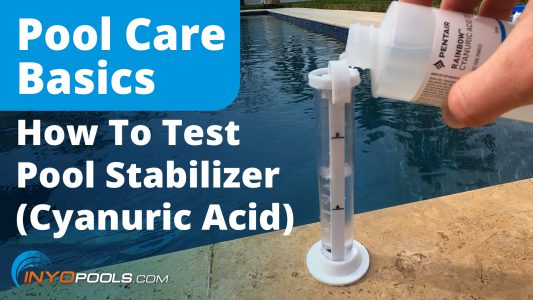
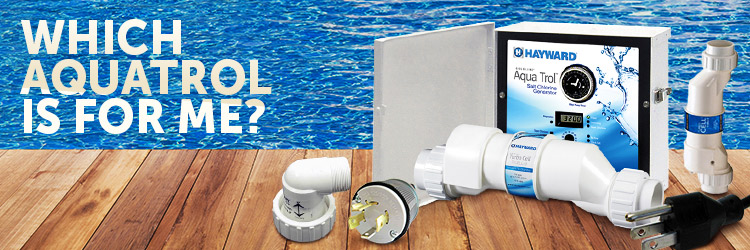
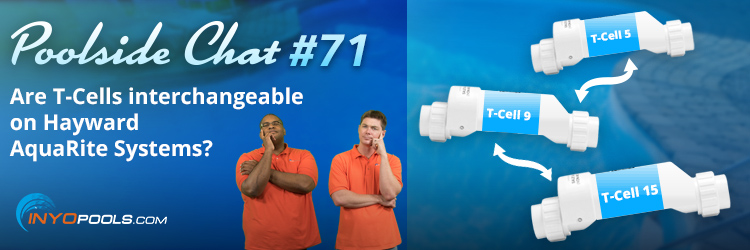
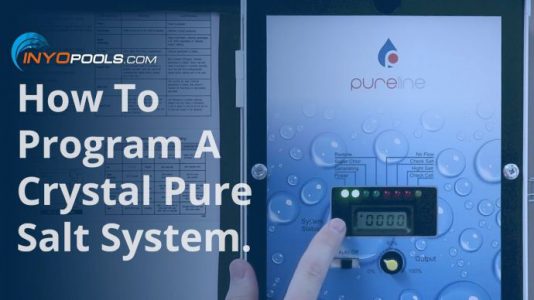






Hello I just purchased Bestway 15 x 36 Steel Pro Frame Above Ground Swimming Pool Set and was wondering what saltwater system should be used on this pool.
We are purchasing a house with an existing 28,000 gallon concrete pool and want to convert it to saltwater. What is the best system to use and does it matter that it’s a concrete painted pool?
I am looking for a sand filter system for my salt water pool about 40,000 gals. and would like to replace my filtered system with a sand filter is it okay to do so
Switching to a sand filter will no be an issue. What is the model number of your current filter so I can figure out something with similar flow rates. Also, do you have any space restrictions on your equipment pad?
Matthew
We have an above ground intex pool 18 ft x 48 in with an intex krystal clear sand filter pump and an intex Krystal clear salt water system, they are 1 year old and seem to be working fine. We added the salt and shock and everything was fine till we had a week of heavy rain. The pool overflowed and had to add more salt then it was too high so we drained 20% and refilled the pool. Now I can’t seem to get a chlorine reading at all. We added salt, added shock and even liquid chlorine, but within a couple days still no chlorine again. Both systems seem to be fine, no corrosion, no codes popping up on the salt water system. What am I doing wrong? Please help! Any suggestion is welcome, thank you!
Hello
You mentioned muriatic acid. Is that used with an inground vinyl liner?
Yes, muriatic acid can be used on vinyl, fiberglas, and gunite pools. Be sure to dilute the acid in a bucket before adding it to your pool; the formula is 4 parts acid – 1 part water.
We have above ground pool, does it work the same way as an in ground pool as far as converting it to the salt water???
Kelli, it is pretty much the same but make sure your pool is either resin or a Hybrid (a combination of steel and resin parts.) Because salt will quicken the rusting process of steel.
Our pool is a Coleman 18’ round that we take down every year. Would a salt system be ok to use?
If it is a steel pool, I would not convert to salt.
Matthew, can you comment on using the pool salt available from the big box stores vs. that found at 3x more at local pool stores? My local store charges $30+ for a 40lb bag, whereas I can get pool salt at Home Depot for $7-11 a 40# bag. Both salt quality is 98% or better quality.
FYI: Just purchased your aquarite 40k salt generator and am eager to get salinated!!
In my experience, salt is salt. Buy the less expensive stuff.
I have a new Summer waves 18′ x 48′ pool with the pump hanging from the side of the pool. How do I convert that to use my Krystal clear salt water system? Where can I get conversion parts?
Matthew: I have a heat pump for my chlorine pool. If I convert to salt, do I need to worry about damaging the heat pump? Thanks.
Nowadays, heat pumps have titanium heat exchangers, so corrosion shouldn’t be a concern.
My pool has a liner…. How will the salt react with the liner?
Salt water should not adversely affect your inground pool’s liner.
Matthew, I am considering converting to salt water with an inground vinyl lined pool about 20,000 gallons. My question is will the salt be corrosive to the walls behind the liner or my current pump which is located within inches of my house? Thank you
Hello Jim,
If the liner is doing its job then the water shouldn’t come into contact with the pool walls. But if you want to play it on the safe side you can add a sacrificial zinc anode.
We even did a PoolSide Chat on the subject of zinc anodes, take a look.
We are buying a home that has an existing pool. Over 4 years ago it was converted to a salt water pool. Almost two years ago it was converted back to chlorine. What do we need to do to make this inground pool salt water ready? Thanks!
As the blog says, you install the generator, add salt and apply the necessary stabilizers. There is no “special” work done unless you have non-marine grade railings or steps. In that case, I would suggest a sacrificial zinc anode to help prevent rusting.
yes, but the instructions for salt are based on a freshly filled pool. if chlorine levels are already perfect from the chemicals, then how much salt do we add?
Thank you!
Most salt chlorine generator manuals come with a salt chart that has the total gallons on one axis and your current salt ppm on the other. The meeting point of those two lines will be how much salt you need to add your pool. An example can be found on Poolside Chat’s 30th episode post
Or if you want a salt calculator, try PoolMath from Trouble Free Pools.
This zinc anode would not help sustain the life of a heater, correct? We have a new heater so replacing it is not an option. TY.
does the chlorine pool water need to be drained out & fresh put in to change over to salt?
There is no need to drain your pool when converting your pool to saltwater. The residual tablet/liquid chlorine does not affect your salt cell.
Hi. Currently all of our levels in our pool are perfect, but we want to convert to saltwater. we have the salt water system attached to our existing filter and have purchased the salt. However, we have no idea what our next step is, help!!!
Well first step, re-read this article as we do cover the process pretty thoroughly. Feel free to watch this guide as well: How To: Start Up a Salt Water Pool
Or just add salt to your pool if everything is set up, which it sounds like it is. For a guide on how to add the salt, watch this video: How To: Add Salt To Your Pool
I’ve been thinking for sometime about converting my 24′ round, 30,000 gallon above ground pool to salt. Can you give me a ballpark figure on the cost of this. My filter and sand tank are relatively new and work like new. Thanks in advance for your response.
Carlos, how deep is your pool? I ask because the 30,000-gallon estimate seems high for an above ground pool. Going by calculations on Pentair’s Pool Volume Calculator, a pool of that shape with a 5-foot depth is a little under 17,000 gallons.
Let me know the depth and I can give you an idea which SCG is required.
Hi Matthew, we have a very small above ground pool and we are about to change out the liner and renew post hurricane damaged pump and accessories. The pool is 10×10, 46inches high. Is it worth converting to salt, really want to give it a try, but only if its worth while. Thanks
If I wanted a salt generator for a pool that size I would choose something simple and inexpensive like the Chlorease ultra. Your pool is too small to warrant something costly like an AquaTrol.
The Chlorease should do the trick.
Our pool is an inground pool 13 by 17. And 3 to 5 feet deep. What would you recommend for a basic system of switching from chlorine to a salt system
Hello Diane, I see we keep getting this sizing question, so I’ll just post this video we did here. This poolside chat gives you the basics on how to size a salt chlorine generator.
Poolside Chat Episode #3 Salt Chlorine Generator Sizes
Hello, We just purchased a Summer Escapes 18 X 48 metal frame pool. Can you help us determine what size saltwater system we should purchase? Thank you!
Jennifer, I believe the Summer Escape is a soft sided Intex pool. Unfortunately, the salt chlorine generators we offer would not be compatible with their pump system’s plumbing or be secured to its top railing.
Hi Jennifer, Mattew is right, you cannot use a normal saltwater system that is made for inground pools for above ground pools. However Intex does make a saltwater system for above ground pools.The system will connect to the filter pump that came with the pool(may require adapters depending on hose size).
You can find the system(on amazon) for approx $117.00 for a 15000 gallon pool.Although there is a version for 7000 gallon pools which is $7 dollars less, it is recommended to get the one for 15000 gallon pools as the system itself will clean the pool faster while running for shorter periods of time .The only requirement is that the filter pump that you will be using will have to have to be between a 700-3000 gph pump. For best results i recommend using an intex sand filter with this system.If you do so, you will not have to use the pump that came with the pool and there will be no filter cartridges to be replaced. Hope this helps!!
In my experience, those Intex salt chlorine generators are not overly reliable in the long term. That is why we normally suggest the Chlorease or the AquaTrol.
Agreed. Intex equipment does not seem to last long
This is Susan have save new pump I see I do not need to take off to change to salt . Have a 26,000 gallon pool what do I need to convert easily.
Susan, we talk you through the process of switching over your pool to saltwater in the article. Give a re-read (or a first read.)
We are wanting to convert our 4 foot by 27 round above ground pool to salt. What all equipment would we need to buy to do this. Is there a kit or something that you can buy..
Sharon, if you already have a pump/filter system then all you need is the salt chlorine generator and the salt.
I suggest the Hayward AquaTrol Above Ground Salt Chlorine Generator because they seem to be the most solidly built of the A/G generators.
I am new to pools, however purchased a home with one and looking forward to using it. It was a foreclosed home so I am assuming it was chlorine before, and the pump is no good. We are hoping to do salt water, we live in Missouri. Any reccomendations on a pump and salt system to use?
Hello Kim,
Our recommendations will depend on the size of your pool and whether it is an inground or above ground pool. Do you have that info handy?
I am not Kim but I also live in Missouri. I have a above ground pool about 15,000 gallons. I also want to know if I should replace my pump ( it is wired into a timer panel) and if so, what do you recommend. Also, what do we need to know about taking care of the water during the freezing or snow weather.
Just because you are installing a salt chlorine generator does not mean you have to replace a perfectly good pump. If the pump is still working then all you have to do is install a salt chlorine generator by following the instructions listed in the above guide.
For tips on how to winterize your pool, follow the steps listed on this guide: How To Close An Above Ground Pool
I am trying to decide if I want to convert my pool to saltwater, I have a 20,000 to 25,000 gallon pool. I may be over thinking the entire process but from all I have read and seen in product descriptions I do not see any kind of pump just chlorine generators and cells. Do I use my own pump in the conversion process, and what type of system would you recommend for this size of pool.
Garry, keep your pump just where it is. You do not need to switch out your pump/filter system when you convert to a saltwater pool. Basically, you will be plumbing in the SCG into your pipe and then pouring salt into your pool, not other equipment needs to be removed or added.
For your pool size, I suggest using an upsized salt chlorine generator like the Pentair IC40 or the AquaRite 40K so it can more easily maintain the chlorine levels in your pool, without straining the cell.
Hi there, I too have a 20k gallon pool. So the equipment you are referencing is the ONLY equipment needed to switch over? I am trying to determine cost of switching over. Thanks!
As I have stated in my previous comments on the subject, if you have exposed metals like railings or ladders you need to make sure they are marine grade or “salt-friendly”. If the metal components are not salt friendly, then you will either need to replace them or install a sacrificial zinc anode. If you have a heater with a copper heat exchanger, you will need to replace that with a heater with a cupro-nickel one. If you have a real old stainless steel tank filter, then you should upgrade to the fiberglass/noryl type. Also a heavy duty saltwater shaft seal may be a good idea for ensuring the longevity of your pool pump motor.
Looking to change over my pool to salt water set up…but not sure what all I’ll need. My pool is a 10,668 gallon pool…will you please help…. 🙂
Ashley, if you go back up and read through, it gives you a pretty clear idea on how to size it, install it and how to begin maintaining it.
But if you would like the short version I suggest a 15-25K AquaRite System, and about 250 pounds of salt, if you are starting at a 0 ppm salinity level.
Hi, we have a small 5000 gallon pool and bought a intex saltwater chlorinater, I ised the boost button for 10 hours and our water went from clear to dark brown. 🙁
Tim,
Did you use well water to fill the pool? if so there may be an over-abundance of metals in the water causing this weird kind of reaction.
To fix the issue you can use Natural Chemistry Metal Free. if you want a DIY fix, take a look at this video
We have a saltwater system how many hours should I have it set for for a pool that is about 9,000 gallons?
It depends on the pool’s need for chlorine and the size of the chlorinator. Start by setting the salt system for the same percentage the pool is compared to the max capacity for the chlorinator, i.e. if you have a 9k gallon pool and have a 20k gallon chlorinator, set it to about 45%.
We purchased a home built in 1981 and the pool equipment is quite old. We are replacing everything and are considering converting to salt water. Should we wait to convert until it is time to resurface? I am worried about how long it has been.
Thanks-Angie
If the resurfacing is due relatively soon, I would-would hold off adding the SCG until you resurface your pool. This is to avoid the process of adding all your salt and balancing the water, just to purge it all and start anew.
Also, if you are replacing everything on the pool, make sure you are adding salt friendly/ marine grade accessories to the list: Diving Boards, Rails, and Lights.
Angie,
If the resurfacing is due relatively soon, I would-would hold off adding the SCG until you resurface your pool. This is to avoid the process of adding all your salt and balancing the water, just to purge it all and start anew.
Also, if you are replacing everything on the pool, make sure you are adding salt friendly/ marine grade accessories to the list: Diving Boards, Rails, and Lights.
Friends of mine in Florida,want to change there pool over to salt water, Is this a good option for snowbirds ?
Yes, salt chlorine generators are a great option for pools in Florida, But, with any type of pool sanitizers it requires maintenance. If they plan on being out of town for long stretches, they will need to pay a maintenance company or have friends dose their pool with water conditioner, add salt or shock the pool every so often to keep the pool water clear.
I may be purchasing a home with a salt water pool. We prefer chlorine. Can you provide information on converting a salt water to chlorine pool?
Jen, you do not have to do anything when going from salt to chlorine. Simply remove your salt cell from the plumbing and start adding chlorine.
How many salt systems to run 115000 gallon pool
Most systems are good up to 40k or 50k… when you get higher you need multiple cells to accomplish this… it gets costly.
For a pool that size you would require a commercial system that has multiple cells. The AutoPilot Pool Pilot Professional is a good place to start.
I am converting my pool to salt system now. Reading your article, may I ask you to clarify:
Do I shock the pool water BEFORE or AFTER I add the bags of salt? I would be shocking it now as it is approaching season, but want to make sure I do this in correct order. Thank you.
Jim, it does not matter if you add shock before or after adding salt. They mingle well with one another.
Ty for taking the time to post this info. All questions were answered.
Thank you, sir!
A saltwater pool sounds like something that would require more money and time to maintain, but it would be well worth it. Whenever I swim, the chlorine does quite a bit of damage to my skin and hair. It would be nice to be able to jump in and not worry about that!
Hi Stephie, the salt chlorine generator is a hefty investment upfront but what you make up for it in chlorine costs and sweat equity.
matthew
we have an 18×36 pool shallow end is 4 ft middle 5 end 8 ft so what size pump and what all do we need to change over I’m afraid its going to be over our budget
any suggestions
it depends on your plumbing/feet of head but a 1.5 HP or 2 HP should be fine. If you are not changing out the filter, I would stick with the same pump HP as you have now to prevent pressure issues. For a pool that size (mid to high 20k gallons) I would install a 40,000 gallon system. The AquaRite or the Intellichlor
ooes the salt water system go in front or behind the water pump and filter
The salt chlorinator is the last piece of equipment your water goes through before it goes back to the pool. It should be plumbed after your pump, filter, and heater.
I bought a 15×48 intex pool. Do I use the filter that comes with it or hook up the salt water filter I. It’s place?
There is no saltwater filter, that I know of. To run a saltwater pool, you need a pump, a filter, and the salt chlorine generator itself. Just make sure you have those three things, and you should be set.
Can you tell me a cost to convert a 97,000 gal commercial pool over to salt? With an average swim load of 50 to 75 people @ day? Spending $5000 @season on chlorine and etc… looking for a safe alternative. Thanks
I’m not sure what the total cost would be because you have to take into account of salt and whether you would need to upgrade to marine-grade railings, and etc to get up to code. But the system required would be at least $9,000.
The AutoPilot Pool Pro is going to be your best option for a pool that size.
our existing filter is charcoal. Can we convert to saltwater with this type of filtration system? we have been told we have to switch out the filter to DE or sand before we can convert.
I do not believe charcoal would pose a problem when you convert to salt. But I would switch away from charcoal anyway because I have read it has trouble trapping inorganic material like lotions, oils, etc. Sand and Cartridge are the easiest to maintain, but DE offers the best water quality.
Can I use the filter pump that comes with an above ground pool? Or do I have to buy a sand pump? The pump that comes with it puts out a high enough GPH but I’m confused because when You look at the salt water generators it always shows sand filter pumps
More than likely, the pump and filter that came with your system is ok to use with saltwater. Also, you may have seen a lot of sand filters on salt pools, because they are a very popular type of filter. Saltwater systems can be used with sand, cartridge, or DE filters.
So Togo from a reg pump and filter to a saltwater pool I have to get this and also a reg pump and sand filter?
This should have Benin cluded in the blog. So, if you already have a pump and filter, then there is no reason to replace them when switching to a saltwater pool.
If I am replacing the sand filter, is there anything in particular I need to look at? It’s a 10,000 gallon above ground pool.
Just a regular ol’ sand filter will do.
Hi Matthew
Congratulations on a really clear website and excellent responses to these questions, very helpful.
Is there an equivalent to the INTEX 2650 GALL/HR KRYSTAL CLEAR SAND FILTER PUMP WITH SALTWATER SYSTEM for in ground pools? Mine is about 12000 gallons.
Thanks in advance
Ian
Hello, and thank you, Ian.
Unfortunately, you will not find an all-in-one skid pack for an inground pool. The salt chlorine generator is usually the most expensive thing on the list, but if you are on a budget take a look at the Crystal Pure 20,000 Gallon, it would work great for your application.
Also, if you need help sizing a pump and filter, review our inground pool equipment selection series: Pumps & Filters.
http://www.inyopools.com/Products/00101374076315.htm Is no longer available do you have another recommendation?
Crystal Pure Salt System
If your chlorine levels are where they need to be you won’t have a chlorine smell, red eyes or skin problems.